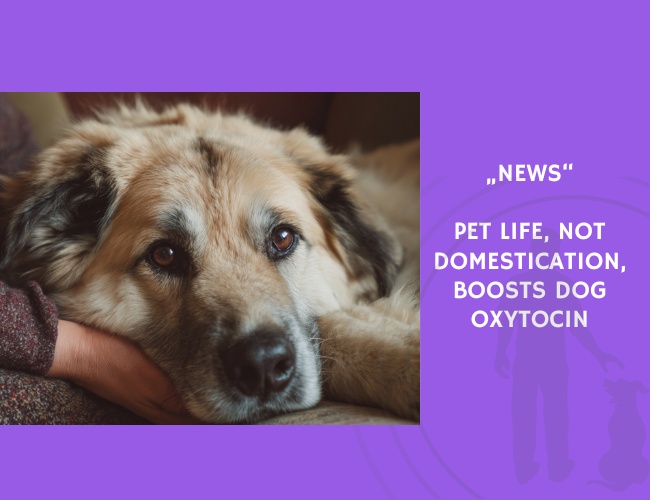Oxytocin, often referred to as the “bonding hormone”, is known to enhance social bonds in both humans and animals. This study compared hand-raised, pack-living wolves, pack-living dogs, and pet dogs to determine whether oxytocin release during human interaction is a product of domestication or life experience.
Both wolves and dogs preferred interacting with a bonded human over a familiar but non-bonded person. However, dogs showed less variability in human-directed sociability. In pack-living animals, physical contact with a non-bonded human was linked to higher glucocorticoid levels, indicating increased stress. In contrast, pet dogs displayed a positive correlation between oxytocin concentrations and physical contact with their owners, while glucocorticoid levels remained stable.
When wolves and dogs shared similar upbringing and social exposure, their behavioral and hormonal differences were subtle. The pronounced oxytocin response in pet dogs appeared to be the result of life as a companion animal, shaped by daily human contact, training, and emotional closeness.
These findings suggest that the unique emotional connection between dogs and humans is strengthened by ongoing, positive life experiences together, rather than being solely an outcome of the domestication process.
Source: Wirobski, G., Range, F., Schaebs, F. S., Palme, R., Deschner, T., & Marshall-Pescini, S., Scientific Reports, July 13, 2021.










